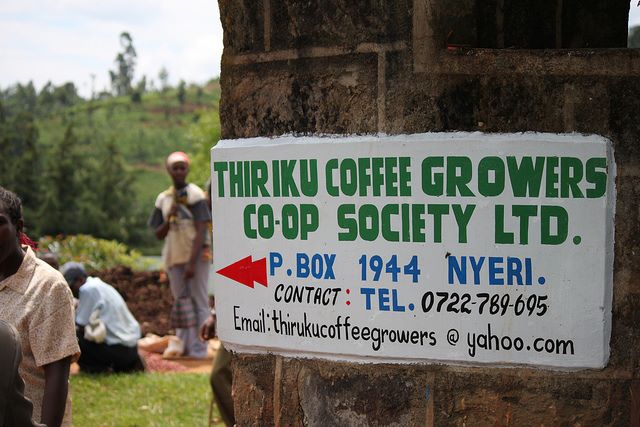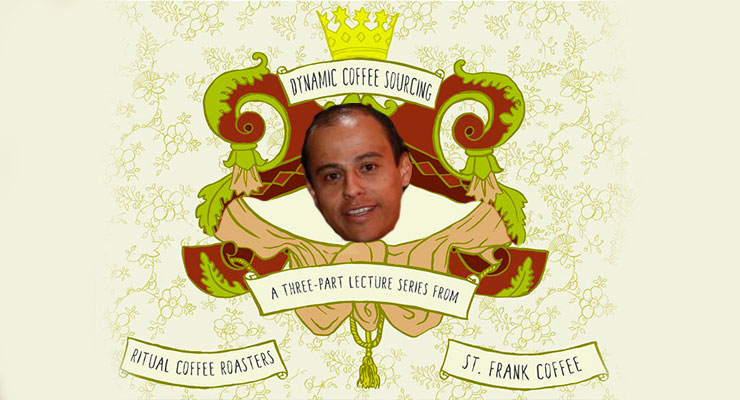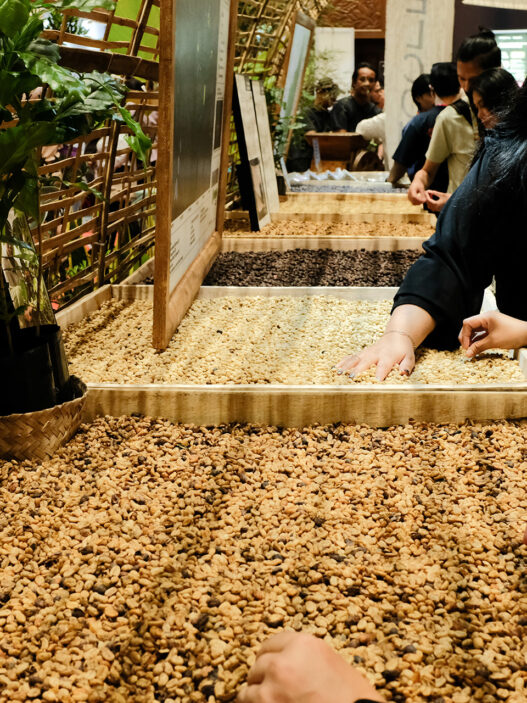It seems like everyone wants to know: what’s the current situation with the coffee crisis in Nyeri, Kenya?
On April 30th our friends and partners at Counter Culture Coffee will attempt to answer that question, at an event that also marks the kick-off for a new season of the Counter Culture Professional Development Series. These happenings are hosted at the Durham-based roaster’s fleet of training centers in Asheville, Atlanta, Boston, Chicago, DC, New York City, and Philadelphia.
The situation in Nyeri is challenging. It’s complicated, and hasn’t been well-reported by mainstream media, but here’s our nutshell version of what’s up:
An update to the Constitution of Kenya has led to increased regional involvement in governmental decisions. In Nyeri, one of 47 counties in Kenya, Governor Nderitu Gachagua has issued an order to mill and sell all of Nyeri’s coffee in Sagana, a town in the Kiryinyaga District, effectively shutting other mills down. This will likely result in decreasing coffee traceability and quality in Nyeri, where many of the finest coffees in the world are grown.
Some organizations, like Kenyan Co-Operative Coffee Exporters (KCCE) are strongly in favor of the reforms, claiming that they’ll lead to increased profits and fairer profit sharing for the small farmers of Kenya. Other organizations strongly oppose this shakeup, including Dormans, a prominent Kenyan coffee exporter with warehouses in Nairobi, Moshi and Dar es Salaam.
For more background on the situation, Sprudge.com reached out to Timothy Hill, a coffee buyer and quality manager at Counter Culture who has traveled and worked worked extensively in Kenya over the last several years. From how to buy a same-day visa at the DRC border crossing to Rwanda’s best substitute for Imodium, Hill is an expert on all things East Africa, and he was gracious enough to offer his perspective on the situation to us.
From the very beginning of this issue, people kind of took two different sides. There is the very professional established multi-national side, which represents Dormans and others, and the KCCE side, the perspective of an institution that’s trying to manage and sell 95% of the Nyeri coffees produced this year.
Counter Culture has over a decade working with Dormans, and I respect their business. They’re great exporters for us. I don’t feel like throwing them under the bus is right, but also throwing the new system under the bus is not the right tactic, either. So very early on I started talking to all the players who are involved, folks like Tim O’Brien at Green Coffee Vault and also Dormans, and it’s actually been really great, that open dialogue. I’ve been able to meet the Trade Minister of Nyeri and also the Governor of Nyeri, and I went to meetings with the KCCE this past weekend in Seattle, as well as a Dormans event. I’ve been able see the story told by the two parties themselves.
You can see it from Dormans’ side—they’ve built this marketplace, done so much work for quality coffee in Kenya, and they’re being blasted there in Kenya from a business perspective. You can also see it from the KCCE side, where folks are trying to set up this marketplace for farmers to get a better return on their coffee growing.
Both sides are trying to get success for the people they’re working with and for. How do you balance those things and find the root problem? The solution is not ignoring farmers telling you that they’re dissatisfied. Whether or not mulitnationals are corrupt, or co-ops are corrupt, overall whatever system is currently in place is unsustainable.The presentations we’re doing tomorrow, we hope that KCCE can read the materials we’re presenting and feel we’re being factually truthful and correct. We also hope that Dormans and other multinationals can read those same materials and say they’re factually correct as well. We’re towing the line, explaining what’s going on from both sides, and trying to portray truth and good intentions overall.
If you care about coffee, especially delicious Kenyan coffees, this should all be highly fascinating to you, and to learn more we strongly suggest checking out tomorrow’s Counter Culture Coffee Pro-Dev events as they happen across the United States.
And if your pot needs sweetening, guests will also have a chance to try the first fruits of a new Kenyan coffee project spearheaded by Tim Hill, whose been working with unique small farmer microlots in Kenya’s Embu and Kirinyaga counties for the last several years. Tomorrow’s CCC Pro-Dev will feature the opportunity to try a single-farmer peaberry 60 pound microlot from Kirinyaga, “the first of its kind that I’m aware of,” according to Hill.
Events start at 3pm–a full roster of CCC Training Center locations is available here. Learn more via Facebook.


























